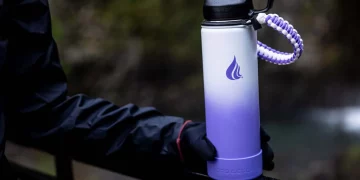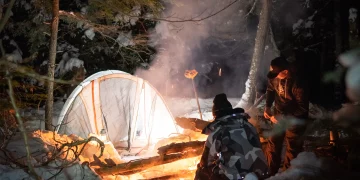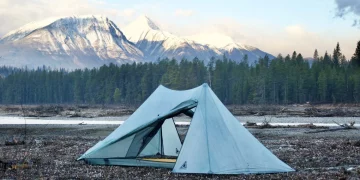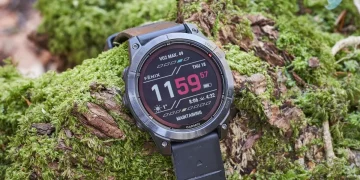Embarking on a backpacking adventure is one of the most thrilling ways to explore nature. Whether you’re trekking through rugged mountain trails, hiking along winding forest paths, or exploring vast desert landscapes, the experience is rewarding on many levels. But amid all the excitement, there’s a crucial question that all backpackers must consider: How much weight should you carry on your backpacking trip?
Packing too light could leave you ill-prepared, while packing too heavy could strain your body, slow your pace, and diminish your enjoyment of the journey. Finding the right balance is essential, and it’s a topic that every hiker, from beginners to seasoned veterans, must think about carefully. In this guide, we’ll break down the ideal weight for your backpack, explain the factors that influence your load, and offer some tips for achieving the perfect pack weight to enhance your outdoor experience.
The Ideal Backpack Weight: Striking the Right Balance
The ideal weight to carry on a backpacking trip depends on various factors, including your fitness level, the length of your trip, the terrain you’ll cover, and the season. Backpacking gear has evolved over the years, with lighter materials and innovative designs helping to reduce the load, but there are still important rules to follow.
As a general rule of thumb, your backpack should weigh no more than 20-25% of your body weight. For example, if you weigh 150 pounds, your pack should ideally weigh between 30 and 37.5 pounds. Going above this range increases the risk of injury, fatigue, and discomfort. But, of course, there are exceptions, and what works for one person may not work for another.
For ultralight backpackers, the weight can be reduced even further, with the goal of carrying no more than 10-15% of your body weight. But for most people, especially those hiking in rugged terrain or for extended periods, a weight between 20-30% of your body weight is usually the sweet spot.
Key Factors Influencing Your Backpack Weight
Several key factors influence how much weight you’ll carry on your backpacking trip. Let’s take a closer look at each one:
1. Duration of the Trip
The longer your backpacking trip, the more gear you’ll need. For a short weekend hike, you can pack light, focusing on just the essentials. A longer trip, such as a week-long or multi-week trek, requires more food, water, and possibly extra clothing and shelter.
Tip: For a weekend trip, aim for a base pack weight (without food or water) of 10-15 pounds. For longer hikes, this weight may increase as you need to carry more supplies.
2. Terrain and Elevation
The terrain you’ll be hiking through plays a significant role in the weight of your pack. If you’re tackling steep, rocky, or rugged trails, you may need more gear for safety and comfort, such as trekking poles, a heavier shelter, or additional protective clothing. In contrast, flatter trails or well-maintained paths might allow for a lighter load.
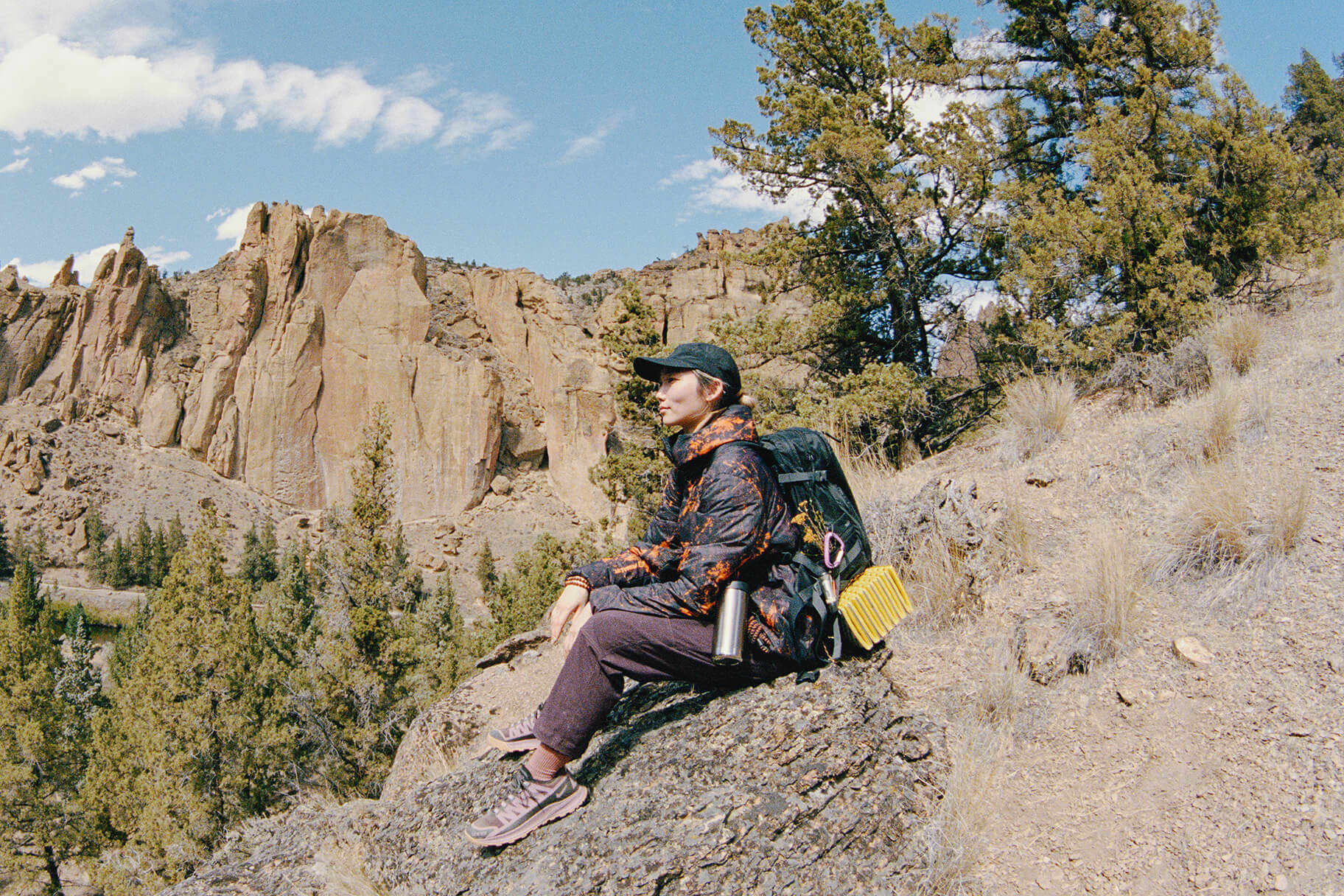
Tip: When trekking through harsh terrain, prioritize gear that enhances safety (e.g., a durable shelter, extra food, emergency equipment). On easier terrain, focus on lighter options.
3. Season and Weather Conditions
Weather conditions dramatically affect the weight of your gear. Cold, wet, or snowy conditions demand extra layers of clothing, heavier sleeping bags, and more substantial shelters. Conversely, hiking in summer may allow you to leave behind bulkier winter gear.
Tip: Summer backpacking typically allows for a lighter pack, but winter treks necessitate additional layers, more insulation, and specific gear to combat the elements.
4. Personal Comfort and Experience
Every backpacker has different preferences when it comes to comfort and experience. Some may be willing to carry a little extra weight for luxuries such as a camp chair, a larger tent, or a sleeping pad that offers better insulation. Others, particularly those with more experience, may opt for ultralight equipment that sacrifices comfort for weight savings.
Tip: Be honest about your comfort needs. If you’re a beginner, a slightly heavier but more comfortable pack may help reduce stress. Experienced hikers, however, may prioritize minimalism for speed and agility.
5. Fitness Level
Your personal fitness level plays a key role in determining how much weight you should carry. A well-conditioned hiker may be able to comfortably carry a heavier load for extended periods, while someone new to backpacking may find even a moderately loaded pack uncomfortable or overwhelming.
Tip: If you’re just starting out, gradually build your endurance by practicing with a lighter pack and progressively increasing the weight over time.
Calculating the Right Backpack Weight for You
Now that we’ve explored the various factors influencing your load, let’s break down the calculation process. As mentioned earlier, most backpackers will aim for a pack weight that’s 20-25% of their body weight. But you’ll need to consider your unique situation to tailor the ideal weight for you.
- Base Weight: This is the weight of your pack, shelter, sleeping system, clothing, cooking system, and any other gear that doesn’t change throughout the trip. For most people, base weight should be around 10-20 pounds for a three-season hike.
- Consumables: These are items that will be consumed or used up during the trip, such as food, water, fuel, and batteries. On a day-to-day basis, food and water will make up a large part of your pack weight. You should aim for a daily food weight of 1.5-2 pounds per person, depending on your energy needs.
- Total Pack Weight: Adding your base weight and consumables together will give you your total pack weight. For a weekend trip, you might expect a total weight around 20-30 pounds. For longer trips, your pack weight could reach 35-40 pounds, especially if you need to carry extra food and supplies.
Examples of Backpacking Pack Weights
- Weekend Trip: Base weight of 12 pounds + 6 pounds of consumables = 18 pounds total
- 3-5 Day Trip: Base weight of 15 pounds + 10 pounds of consumables = 25 pounds total
- Extended Trip (Week or More): Base weight of 20 pounds + 15 pounds of consumables = 35 pounds total
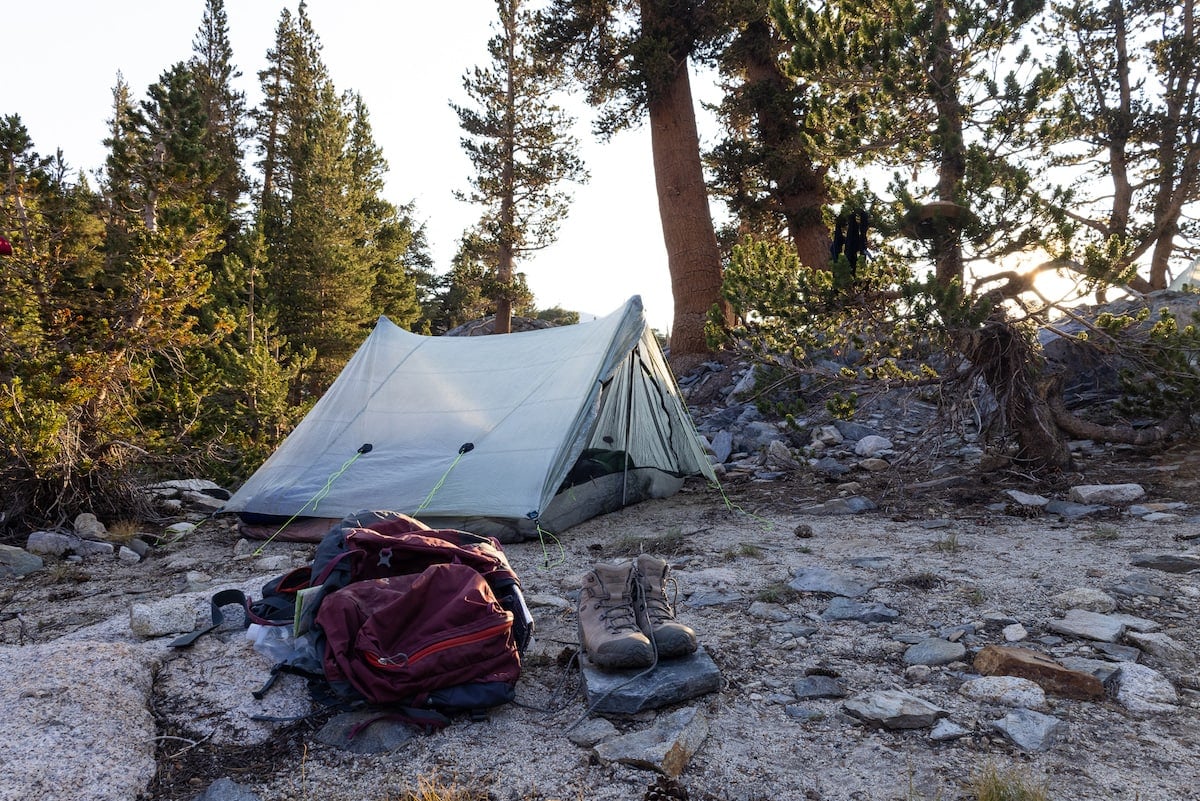
Ultralight Backpacking: Less is More
Ultralight backpacking has gained a lot of traction in recent years. The concept is simple: carry as little weight as possible without sacrificing essential items for safety or comfort. Ultralight gear, like titanium cookware, ultralight tents, and down sleeping bags, allows for packing lighter, but it often comes at a higher price.
Ultralight backpackers aim for a base weight of under 10 pounds. If you’re interested in ultralight backpacking, consider investing in high-quality, minimalist gear. There are also plenty of resources and guides available for anyone wanting to dive into the world of ultralight hiking.
Ultralight Backpacking Tips:
- Choose Multi-Use Gear: Opt for items that serve multiple purposes, such as a sleeping pad that doubles as a chair or a stove that also acts as a heat source for your tent.
- Embrace Minimalism: Leave behind non-essentials like extra clothes, luxury items, or heavy cookware.
- Plan for Resupply: On longer trips, plan resupply points so you don’t need to carry all your food and water at once.
Packing Smart: Tips for Minimizing Weight
While it’s tempting to bring everything “just in case,” there are ways to cut weight without sacrificing essential comfort and safety.
- Downsize Your Gear: Evaluate your gear and opt for lighter alternatives. For example, a lightweight down sleeping bag will keep you warm without the bulk of a heavy synthetic one. A small tarp may serve as a shelter if you’re looking to cut weight further.
- Food Choices Matter: Instead of packing cans and bulky items, opt for dehydrated meals, energy bars, and lighter snacks. You can also freeze-dry your own meals for a personal touch.
- Cut Non-Essentials: Avoid packing “just-in-case” items. If you’re heading into well-marked trails, you don’t need extra backup gear like an emergency tent or multiple stoves.
- Smart Clothing Choices: Opt for merino wool or synthetic fabrics that wick moisture and dry quickly. Limit the number of clothing items, focusing on layers that you can add or remove as needed.
- Carry Water Efficiently: Consider using a lightweight filtration system or purification tablets so you don’t have to carry all of your water from the start.
Final Thoughts: Finding Your Ideal Pack Weight
The key to successful backpacking is to find a weight that suits both your body and your trip’s demands. By evaluating factors like trip length, terrain, weather, and personal fitness, you can determine the right amount of weight to carry. Whether you go for a lightweight load or opt for a more luxurious setup, the right weight balance will ultimately make your trip more enjoyable and safe.













